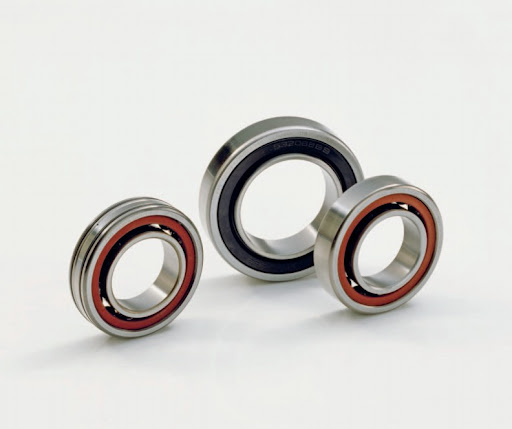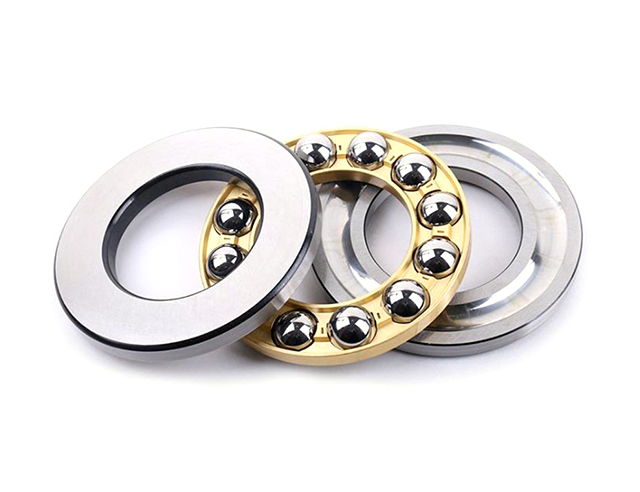News Center
What type of ball bearings can be used for machine tools?
2020-02-24
What type of ball bearings can be used for machine tools?
There are four separate categories for bearings used in machine tool spindles. Each bearing design has characteristics that make it useful for certain applications, and it’s essential to know how each works so you choose the best bearing for your equipment.
Angular-Contact Ball Bearings
Angular-contact ball bearings are the most common spindle bearing. They are rolling bearings and consist of one or more rows of rolling balls between concentric grooved rings. They are useful for both radial and axial loads in one direction, and their axial load carrying capacity is determined by the angle at which the load contacts the bearing. The greater the angle, the higher the load capacity.

Radial or Deep-Groove Bearings
Popular in industrial machinery, radial bearings are rolling bearings primarily used for load bearing on the radial axis. Like angular-contact bearings, they are composed of an inner and outer ring with rolling balls between them; however, radial bearings can carry loads in both axial directions, making them more versatile than their angular-contact counterparts.
Roller Bearings
Roller bearings enhance motion through the use of rolling cylinders instead of balls. They are used to support primarily radial loads and axial loads parallel to the axis in one direction. They are useful in moderate to high-speed applications to reduce friction and enhance equipment speeds.
Thrust Ball Bearings

Engineered to specifically support heavy, high precision thrust loads, thrust ball bearings offer exceptionally precise axial support parallel to the drive shaft, but little to no radial support. The rolling element may be a ball, roller, or needle, depending on the application.
They are particularly useful for applications such as propeller engines, which support free and easy movement of heavy loads parallel to the shaft.
Considerations When Choosing Ball Bearings:
Precision Grade: Machine tool spindles often require high-precision bearings, such as P5, P4, or higher-grade precision bearings.
Rigidity Requirements: Bearings with high rigidity, such as angular contact ball bearings or thrust angular contact ball bearings, are essential for machining operations.
Speed: For high-speed machining tools, use bearings designed for high-speed applications, such as ceramic ball bearings or precision angular contact ball bearings.
Load: Select bearings based on the actual load to ensure sufficient load capacity and service life.
Lubrication and Sealing: Choose appropriate lubrication and sealing options to ensure long-term stable performance of the bearing.
Welcome to contact us if you have any request about DSYC bearings!